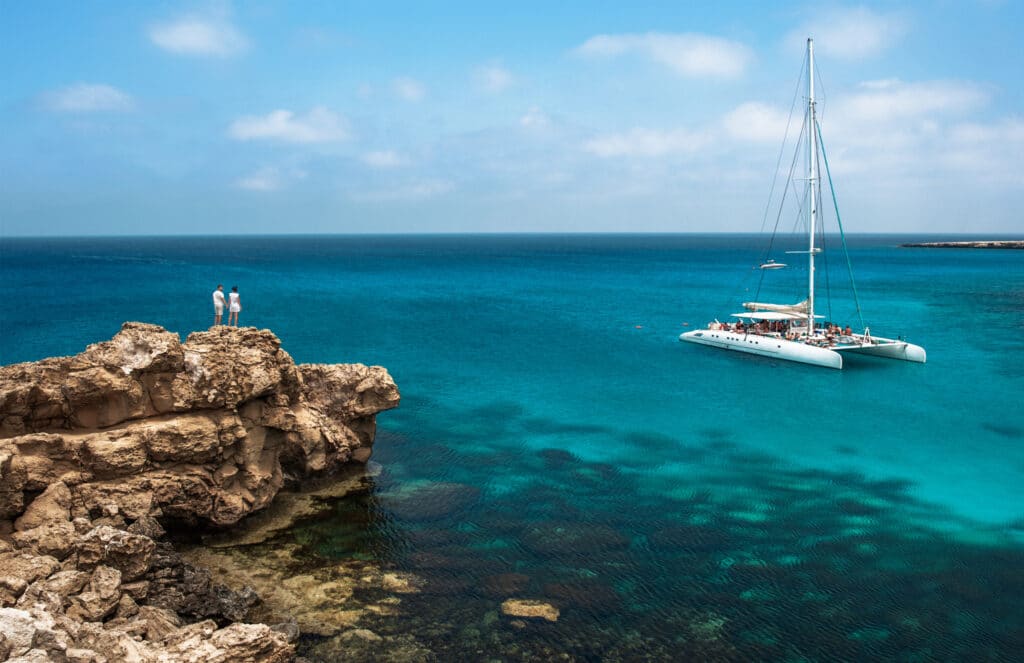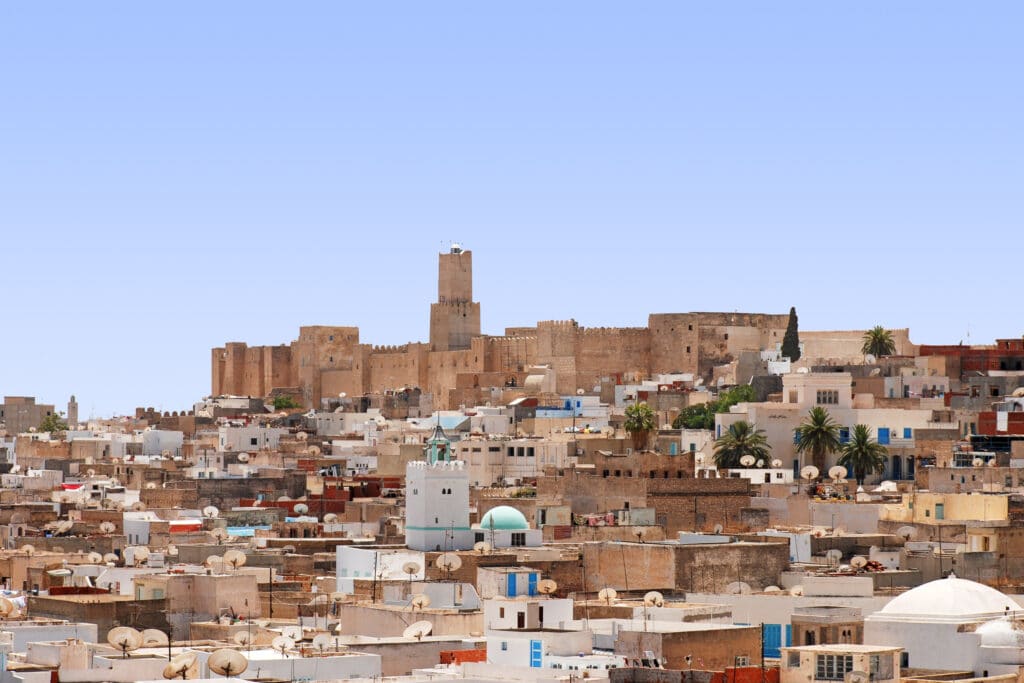
Some facts and statistics
Location
Tunisia is located in North Africa. It’s the smallest country in the North African region. It shares its borders with Libya in the southeast, Algeria to the west. To the north and east lies the Mediterranean Sea. Sahara Desert constitutes the south of the country.
Population and area
Its area is about 64,000 sq. miles. Its population is about 10.7 million.
Capital and language
Tunis is its capital and the largest city of Tunisia. Arabic is the official language of Tunisia. Languages spoken other than Arabic are French and Berber.
Ethnic Division: 97% are Arab-Berber, whereas 3% are other miscellaneous ethnic group.
Religion: 98% are Muslims, 1% population follows Christianity and the other 1% follow Judaism or have other beliefs.
Largest cities/towns of Tunisia: (according to their ranking)
- Tunis
- Sfax
- Nabeul
- Sousse
- Ben Arous
Famous tourist points: There are many places in Tunisia that a tourist might want to see.
• Dougga • Bardo National Museum • Al-Zaytuna Mosque • El-Ghriba Synagogue • Mosque of Uqba
• Byrsa • Ichkeul Lake • Carthage National • Sousse Archaeological • St. Louis Cathedral

Economic Overview
Tunisia produces around 97,600 barrels of oil per day. Tunisia has 51% of oil reserves and about 49% gas reserves. The estimated reserves of Tunisia are said to be around 838m barrels. Tunisia has around twelve main oil fields which generate 76% of Tunisian oil. Most of the oil fields are in the southern and eastern parts of the country. El Borma, Ashtart, Sidi el Kilani, Quedna, Adam and Didon are some big oil concessions in Tunisia.
Many foreign investors are interested in oil exploration and production activities in Africa. In the late 1990’s, a Hydrocarbon Law was established in the country to minister the exploration and production activities going on in Tunisia.
GDP growth rate: 3.3% (2012 est.)
Currency: Tunisian Dinar
Major Exports: Hydrocarbons, electrical and mechanical equipment, chemicals, agricultural products, clothing etc.
Main Export Partners: France, Italy, Germany, Libya, Spain, Sudan
International Companies: Airbus, Hewlett-Packard
The foreign investors interested in building up a business in Tunisia have to follow a complicated procedure, the first step of which is, to get all the relevant documents of the parent company being translated into the official languages of Tunisia, namely French and Arabic.
Political Scenario
After the Tunisian government declared itself bankrupt in the mid 1850’s, the French sensing the instability of the country, from its being controlled by an international financial commission, invaded it. Tunisia remained a French colony until 1956, when it gained its independence under the leadership of Habib Bourguiba. Habib Bourguiba was the President of Tunisia until 1987, when because of a coup, Prime Minister Zain-al-Abedin assumed the presidency. Zain-al-Abedin ‘s 23 year long reign ended in January 2011, after Bouazizi’s death triggered a revolution in Tunisia. After a transitional government, nowadays Moncef Marzouki is the President of Tunisia.
Culture and Society
The Tunisian society is a well-knit society, where a person is subordinate to its nuclear and extended, both families. The greetings are always prolonged, with people asking about the health and well-being of the other person’s family. Often the food is eaten from a communal bowl, whereby the morsels of food should be taken only from your own side. It is considered bad manners to reach across the bowl to get something. Giving gifts is a Tunisian tradition and guests often bring a gift of fruits, nuts, or chocolates for the hosts. A deferential distance is always maintained while greeting women and men do not offer their hands first to a woman. Sometimes a nod is a form of greeting between men and women. Formal dressing is always appreciated in a meeting or a gathering. It shows your social status and is also a sign of respect for the hosts.
Business Etiquette and rules
- A handshake is the most common form of greeting. Introduce yourself well at the start of the meeting and also mention if you have a business related qualification. It will make a good impression on your Tunisian counterparts.
- Often enough, meetings are conducted in an informal environment such as a cafe.
- Dress formally for the meeting.
- Meetings should be scheduled. While scheduling a meeting, try to keep in mind the prayer timings, the fasting month and Friday prayers etc.
- Professional French or Arabic translators and Interpreters may be required if you cannot speak French.
- Tunisians prefer to know the people personally, with whom they are conducting business. A good relationship with your business partner and an atmosphere of mutual respect and trust will go a long way.
- Tunisians take time in reaching a decision; therefore, never show your impatience with any delays.
- Dress conservatively, this goes for both men and women.
- Get your business cards printed in one of the official languages of Tunisia, namely, French or Arabic. Business cards are given without any formal rituals.
